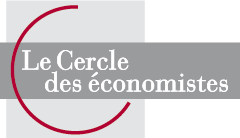International solidarity, a pandemic collateral victim?
Overview
The example of vaccination is striking to illustrate weakness of international solidarity facing of the COVID-19 crisis. COVAX mechanism, which was supposed to equalize access to vaccines for all nations, has been set aside by the most developed countries, as they rather implemented national preference strategies. Conversely, Official Development Assistance has increased significantly in 2020 compared to 2019, even though issuing countries were going through particularly tense budgetary restrictions. What then are the drivers of this solidarity and its fluctuation? Politically and economically, what are the gains for one nation helping another? Can it be a moral act, or rather a long-term investment for influence and international credibility?
Furthermore, what are the most effective vectors and tools, in normal times and facing a crisis, to support developing countries? Should we favor soft loans, monetary donations, direct investments in local projects, in-kind donations (vaccines and medical equipment for instance)? How can we ensure that the COVID-19 pandemic does not further increase inequalities between nations in the long term?
Speakers





-
Blavatnik School of Government, Université d'Oxford
Coordinator

-
Membre associé, Le Cercle des économistes
Moderator













